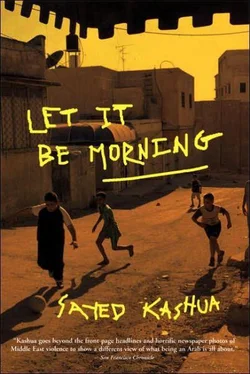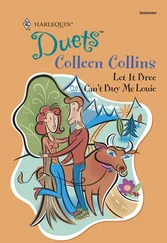I proceed like a robot, tilting my face to the right to keep my mouth and eyes from touching the sewage. I shove the bag into the pipe and inform my father. I pull out my arm. It’s dripping wet, but I ignore that. My father hands me a bag slightly larger than the first one and says we need to insert one more to make sure it’s completely blocked. “It mustn’t flow back up from the ditch near the road.” I take it from him without a word and stoop back down, resuming the same position, my left arm reaching all the way in, my left cheek and whole body touching the ground. And I push the bag, which is harder to do because this one is larger.
“Now we’ve got to get the sewage out,” my father says, and hands me and my younger brother some black buckets.
“Pour it out in the road, or as close as possible to the road.” The sun is centered high above us, but we can’t stop now. We have to finish the job. Empty one ditch, the one that the sewage of the three neighboring houses will flow into. My brother and I take turns plunging the bucket into the ditch, and pulling it out when it’s full, moving a few steps back and pouring it as close as possible to the road near the house. A few of the neighbors see us and try to do the same, to deal with their own sewage problems. “Let’s see how long it takes them to figure out that they have to block off the pipe to the road first,” my father says, smiling his victory smile. My brother and I work continuously, without speaking, quickly, ignoring the heat and the stench. The level of the water in the ditch remains unchanged. My father walks over to the ditches we uncovered earlier. He studies the first, then the second, and announces loudly, “Excellent, it’s beginning to go down. Soon it will be over.”
I try to think about the new situation, the roadblock, and wonder if I should be listening to the news. Maybe they’ve found out something, maybe things have changed, but I can’t really concentrate on such things. My main concern now is to dump my bucket, which is full of muck. My father gets back in position. He calls out my mother’s name, and then, “Water!” at which she emerges with a glass of water in her hand. He complains it isn’t cold, spills it out, hands the glass back to her and asks for another. She reminds him that they no longer have a refrigerator and that she can’t make it any colder — which earns her a tirade from Father, who doesn’t care about anything right now, and she should have thought of it sooner. Everyone has to obey Father. Mother is his main victim, but at least she enjoys it. She adores him, loves him more than her own life. She’ll do anything to keep him from getting upset, and it isn’t that she’s afraid of him. Unlike us — we have always obeyed him to keep from being punished. I dash back and forth with the bucket, glancing at Father every now and then, to see if he is at least pleased with my hard work. But his face shows nothing.
What am I afraid of, for heaven’s sake? I’ll be thirty soon. What am I afraid of? A punishment? It’s been ten years since he last struck me. My mother returns with another glass of water, and warns him apologetically that there is no ice, no refrigerator and it’s as cold as she can make it. Impatiently, he grabs the glass from her and drinks it, grumbling, muttering garbled words. My body is overcome with fear, not because of the situation in the village, and not because of the roadblock or the lack of food and water, but because of my father’s anger. I’ve always tried to do as he asked, but I haven’t always succeeded, and whenever I failed to do something, like pulling out the weeds under the trees which once grew where the new houses now stand, or when my grades weren’t good enough, I’d get a beating. I can still hear the sound of those lashings, of the branches he’d use to flog me.
The floggings with tree branches were not the most painful punishment I received, but they were the harshest ceremony of all. Father would decide on the punishment. He didn’t just lash out in a fit of fury or irritability. He planned the punishment, and would tell me to come out into the yard and choose the branch that would be best for flogging me. I was supposed to bring it to him with the bark removed. He would inspect it first, try it out through the air, then tell me to lift my shirt and turn my back toward him. He’d try it on me once or twice and if he wasn’t satisfied he would send me to find another one, and promise that the disrespect I showed by choosing the first branch would earn me an even bigger punishment. My father preferred branches from the lemon tree that once stood in our yard. He liked them nice and thick on one end and tapering off on the other. He liked to hold them by the thick part and to hear the noise they made in the air and the noise they made as they hit your body. You weren’t allowed to cry, because that would only increase the number of lashes. You weren’t allowed to run away, because that could really have ended in catastrophe. You weren’t allowed to make him miss. He’d tell me exactly where to stand, to turn a little, to bend over. But I knew then, as I do now, that he did it so we would be the best children in the whole village.
B oom, boom, boom, boom —the sound reverberates through the whole house. I wake up shrieking uncontrollably and jump out of bed. Boom, boom, boom, it continues. It is clearly the sound of shooting, but not the noise I am used to. It is very loud, much louder, the sound of shelling. My wife is on her feet too, and I shout, “The baby, the baby,” and the baby begins screaming at the top of her lungs. I hear her screaming and I lie on the floor with my hands above my head. The sound lets up for a minute. “Hurry down,” I shout to my wife, and rush into the baby’s room. I pick the baby up, hug her in both my arms and try to protect her head. I run down the stairs, and the noise begins again. It’s the loudest shelling I’ve ever heard. I bend over, trying to keep my head hidden, and continue running downstairs. “Into the bathroom,” I yell to my wife. “Get into the bathroom.” For some reason I figure that is the safest place in the house. At least it’s on the lower floor. We go in and I close the door behind me. The baby is screaming and I can’t see her face in the dark.
I put the baby into the bathtub. She screams and I bend over her. My palms touch the bathtub floor and my body hovers over her without going beyond the sides of the bathtub itself. It’s the safest place to be, I think. My wife is whimpering nearby, on the bathroom floor. She’s lying down too. “Put your hands on your head,” I tell her.
Another round of shooting, continuous. Judging by the noise, they seem to be shooting at our house, or nearby. Our house is exposed only on its northern side. If the shooting is coming from that direction and not from the roadblock, the bullets will have to go through three walls to reach the bathroom, and to hit me and the baby they’d also have to pierce the bathtub. The baby continues crying and I try to calm her down. “Shhhhh, Baba.”
In between rounds I tell my wife to switch with me. She gets into the bathtub and leans over the baby. I lie down on the floor. When the shooting resumes I give off a scream, convinced I’ve been shot in the back. I try to protect myself by pulling my head toward my legs while lying on my side, with my head toward the bathtub. Another round, then a lull, then another round, and another lull. When the shooting lets up we can hear babies and children and parents shouting in houses nearby. I think of my parents, my older brother, his wife and his little son. Their house is more exposed than ours and it’s higher up too. I hope they haven’t been hit. I try to concentrate and to make out the voices between rounds, but I can’t.
Читать дальше












